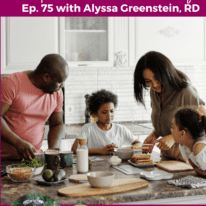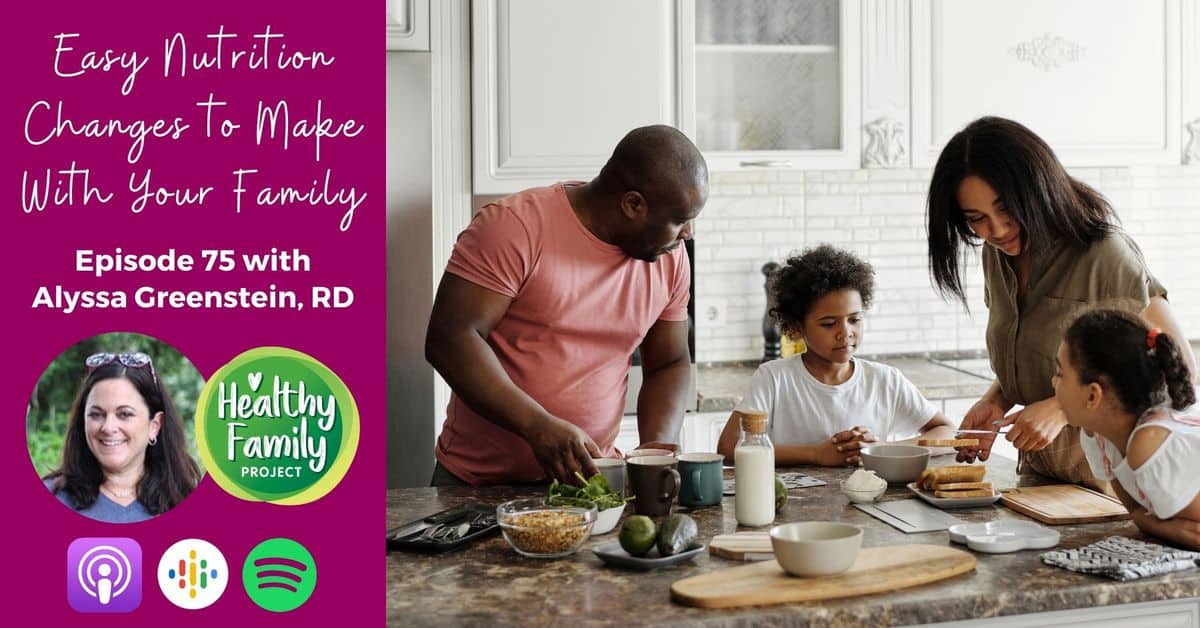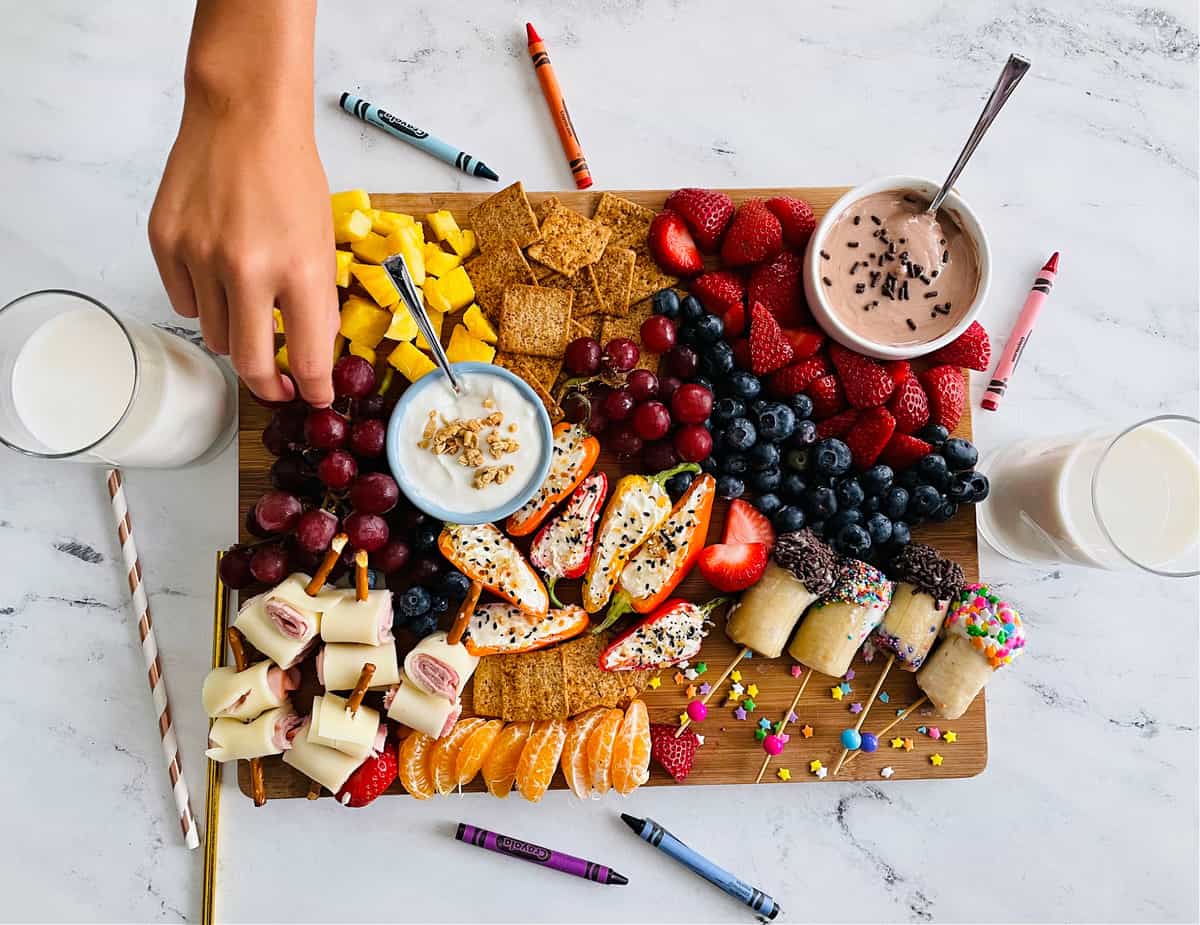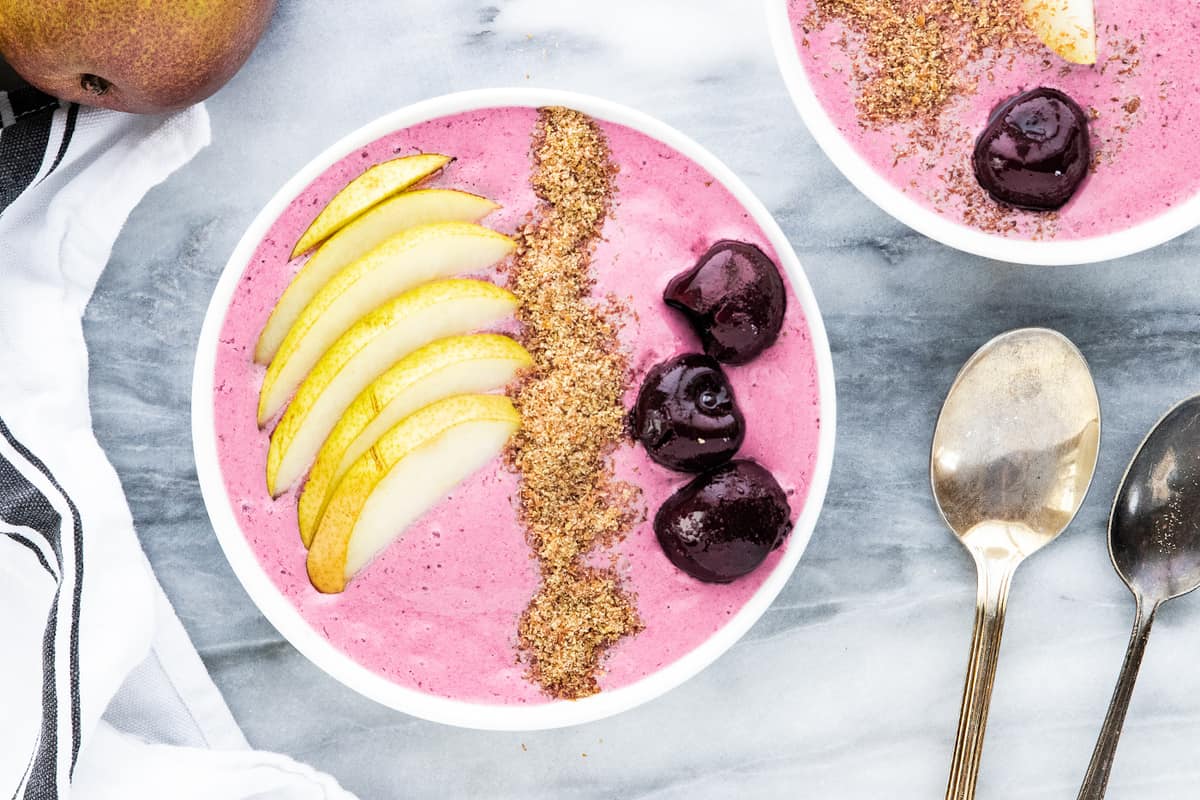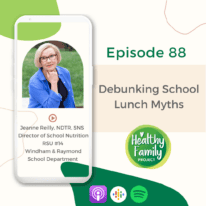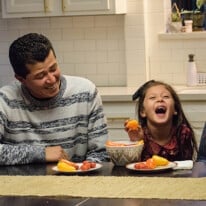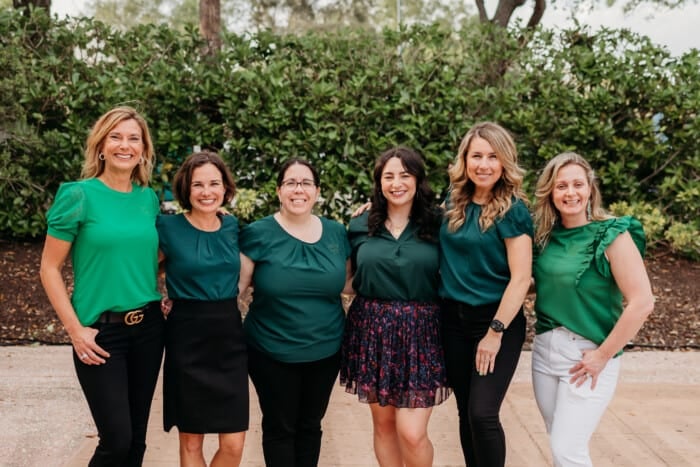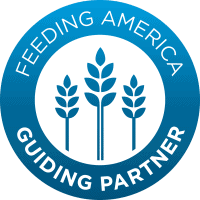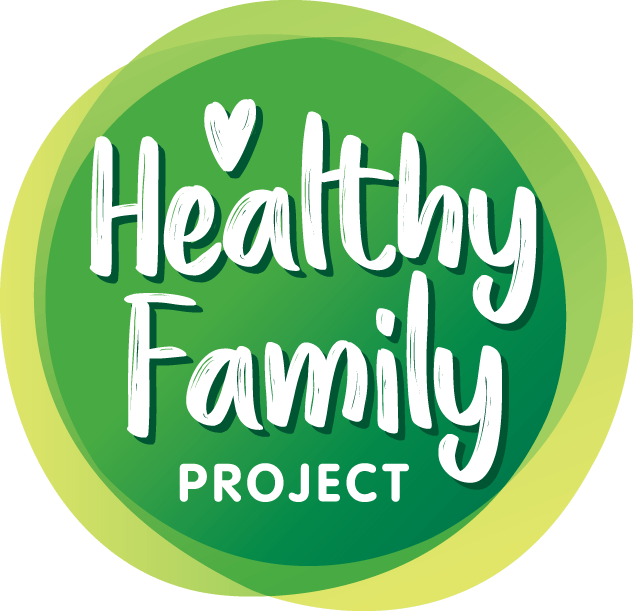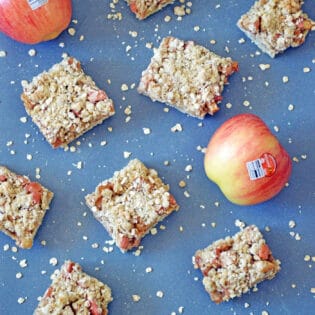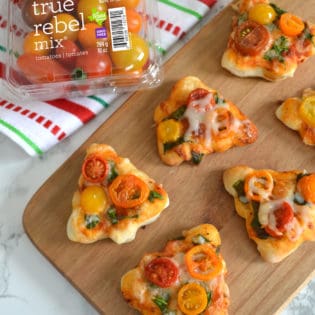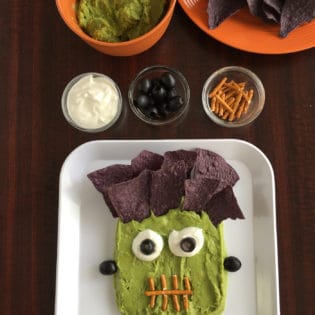Episode 75: Tips From A Registered Dietitian to Help Your Family Eat Better
On this episode of the Healthy Family Project Podcast, we’re joined by Alyssa Greenstein, registered dietitian and Senior Manager of Nutrition Affairs Communications with Florida Dairy Farmers. This episode is all about how families can make small changes and adopt manageable habits that will lead to overall healthier eating. Alyssa shares how to prioritize breakfast, the importance of writing down what we eat, and dairy nutrition benefits.
Ringing in a new year always gets us excited to set new goals, rethink our habits, and reset after the holiday season when our routines take a pause. Big or small, goals can always be broken down into smaller steps that feel more attainable and realistic. If you’re looking to eat healthier in the new year, this podcast episode is for you!
We love inviting registered dietitians on the podcast as they are experts in the field of nutrition and dietetics. Alyssa has been a registered dietitian for over 20 years and was awarded Florida Dietitian of the year. I loved picking her brain for manageable steps families can incorporate to make healthy eating easy especially when all of us are so pressed for time.
We chatted about how lots of small changes families can make over time that lead to big results when it comes to adding more nutrient-packed foods into the rotation. A little planning and creativity can go a long way to encourage our younger and sometimes more selective eaters to try new foods. Plus, getting the whole family on board ensures accountability and opens the door to trying new things together.
About Our Guest, Alyssa Greenstein
Alyssa is passionate about all things food. Alyssa provides timely and scientifically sound nutrition information to the media, medical professionals, dietitians, educators, students, consumers and others concerned about fostering a healthier society.
She especially enjoys being in the kitchen cooking and showcasing recipe tips and hacks for foods that are both healthy and delicious. Alyssa emphasizes the importance of 3-4 servings of nutrient-rich dairy every day which reinforces that dairy is good for the community and good for the planet. Alyssa has contributed to and has authored several articles and blogs sharing her expertise and topics including sustainable food systems, dairy’s role in the diet, child nutrition, chronic disease and nutrition and wellness.
She graduated with a BS in Food and Nutrition from Florida State University and was awarded Florida Dietitian of the Year, Mentor of the Year and is past President, and past Member at Large of the Florida Academy of Nutrition and Dietetics.
Alyssa holds specialty certifications in adult, childhood and adolescent weight management and has been the Senior Manager of Nutrition Affairs Communications with Florida Dairy Farmers for over 12 years. In her spare time, she enjoys spending time with her family of five and her golden retriever and golden doodle.
Listen to Tips From A Registered Dietitian to Help Your Family Eat Better episode
What We Cover:
Want to skip straight to a hot topic? See timestamps below. But of course, we recommend listening all the way through to get all the great tips and tricks!
- 2:29 Meet Alyssa
- 4:46 Easy breakfast ideas for busy families
- 12:15 Why you should write down what you eat
- 17:42 What you need to know about the nutritional benefits of dairy
- 26:10 Tips for putting together your grocery list
- 31:50 Easy weeknight dinner idea: “trash soup”
Relevant Links
- Check out Florida Milk’s website for recipes & nutrition tips
- 5 Healthy New Year’s Resolutions for Your Family
- 40 Grab & Go Breakfast Ideas
- Meal Planning Tips + FREE Grocery List Printable
- 28 Healthy Recipes to Start the New Year
- 12 Healthy Make-Ahead Breakfast Ideas
Other Podcast Episodes to Check Out:
- Episode 72: How to Create a No Stress Dinner Plan
- Episode 36: Dietitian-Approved Healthy Grocery Shopping Tips
- Episode 21: Meal Planning & Cooking with Kids
Healthy Family Project Facebook Group
Join our Healthy Family Project Facebook group! This group will serve as a safe space for parents and caregivers to talk all about raising a healthy family – from dealing with a picky eater and tips to get more fruits and veggies onto plates to exercising as a family and mental health. We welcome all of you to join in!
Listener Survey!
Thank you so much for supporting the Healthy Family Project Podcast! We’d love it if you could take 5 minutes to let us know how we can bring you the best possible content for future episodes. Take the survey here.
Healthy Family Project Podcast
Conversations covering hot topics in the world of health, food and family with a dose of fun. Helping families ease their way into a new fresh and healthy world.
Be on the lookout for new bi-weekly episodes and don’t forget to subscribe on Apple Podcasts, Google Podcasts, Spotify or your favorite podcasting site. If you like an episode, make sure to leave a rating and comment.
If you are interested in being a guest on the Healthy Family Project podcast, contact amanda@healthyfamilyproject.com with your topic idea for consideration.
Transcript for Episode 75
This transcript was produced by Otter.Ai. Please forgive any misspellings and grammatical errors.
00:09
Welcome to the healthy family project podcast covering the hot topics in the world of health, food and
family with a dose of fun. Welcome to the healthy family project podcast. I’m your host Amanda, Happy
New Year everyone. I thought we’d kick the year off with some easy resolutions will come first simple this
year. So before we get started wanted to make sure you join our healthy family Project Facebook group
and are following along with us on our social media outlets. We have been posting some awesome
things over there on Instagram, as well as Facebook and Twitter. We also have a tick tock now so if you
are on Tik Tok, please find us. We’d love to have you there new to that space but having some fun. We
also have a weekly email delivering recipes, tips and ideas to get you through the week. And you can
sign up for that newsletter in the link in our show notes. I’ve had the chance to get to know Alyssa
Greenstein, Senior Manager of nutrition affairs communications with Florida dairy farmers over the past
couple months. She is someone I will probably now know forever. She’s a fellow mom who is relatable,
open and honest. You guys know I love that, about the struggles we face as parents and guardians.
Alyssa is passionate about all things food, you know, also right up my alley. She especially enjoys being
in the kitchen and showcasing both healthy and delicious recipes. Alyssa emphasizes the importance of
three to four servings of nutrient rich dairy every day, which enforce it reinforces the dairy is good for the
community and good for the planet. In her spare time, she enjoys time with her family of five and her
golden retriever and golden doodle. So today’s conversation is going to be great touching on breakfast
grocery lists, dairy and the benefits of writing down or keeping track of what you are eating. So let’s jump
in. Welcome to the healthy family project podcast. Alyssa today we are talking about small nutrition
changes to make with your family this year. And I know you have a lot of simple ideas for our listeners
simple is very good. As you guys know if you’ve listened to the podcast before, I like the easy and simple
changes, nothing overwhelming. But before we get started, can you tell listeners a little bit about you. So
it is great to
02:31
be with you and I am a registered dietician. Of course I am a mom of three. So going into the new year is
always fun when you are challenged with your kids. And I work for the Dairy Council Florida and Florida
dairy farmers and I have been a registered dietitian for a long time, over 25 years. But we represent our
Florida dairy farmers who work everyday 24/7 to provide a steady and steady supply of fresh lots and
lots of milk. And so I am lucky enough to share the importance of a healthy, happy, sustainable work
world. And so when I talk about nutrition is based on science and as our foundation now the fun part for
me is when I get to translate the science into realistic and relatable information. And that’s my favorite
part because that’s when I can share with families, consumers and then of course health professionals
and then being passionate about food and all things culinary is my most favorite way to educate and
what better way to educate them by educating with food and with tastes.
03:33
Wonderful. Well, I know in our pre call, we talked a lot, we’ll probably be having a part two to this
episode, just so you guys know. We’ll be a regular. Exactly, yeah. So it’s the new year and everyone is
talking about their big and oftentimes unattainable resolutions. I feel like it took me years to recognize
this in yourself. So, you know, wanting to scale way back this year and look at some simple changes we
can make as a family, not go super big things that will impact our overall health in the long run. But again,
sticking to those like just really simple things that we can do. So like I said, we had our pre call and there
were a couple of topics that I wanted to elaborate on. And so first off, let’s talk about breakfast. I know
busy families sometimes run out the door and don’t eat breakfast. I like when I say I know sometimes
busy families and quote air quotes because that’s me. I feel like I get up and put something together for
my daughter, but I feel like she would probably just leave without eating if I did not do so. But I know it’s
been drilled into our heads. Breakfast is the most important meal of the day. You know, you got to eat
breakfast, you got to eat breakfast. So what’s the deal? What’s your take on it? I’d love to hear because I
know this was one of those simple things that we could invest in for the new year.
04:57
Yeah, so I think parents can all relate to how hard it is to sometimes feed our kids. Of course, we know
that alarms go off at different times, I think we hit the snooze button far more often. If you have different
aged kids in different schools, there’s different times of the day that they’re leaving. So there is just a
plethora of challenges that I think we can all relate to. Breakfast is simple, obviously break the fast
breakfast. And so we know that it doesn’t necessarily need to be a brunch with a full spread. I think the
biggest challenge that you just hit Amanda is there are so many times that I think we can all relate to
putting together either a breakfast sandwich or a smoothie, and it doesn’t make it out the door because it
finishes last like breakfast finishes last. I think we can all attest that we know the importance of breakfast,
but I don’t know maybe we need to dial it back a little bit. And and look at that science first. Sometimes
that helps for us as parents to get creative. So studies have shown that kids that eat breakfast perform
better in the classroom. Well, of course that makes sense, right? I mean, we’re feeding, it’s been eight to
10 to 12 hours without us without eating. So we’re hungry. We know that kids that eat breakfast score
higher on standardized tests, we know that kids that eat breakfast are healthier. We know that being
nourished impacts our brain and our mental performance. So those are all like the things that the science
stands by. We also know that people are kids, adults that eat breakfast, have a healthier and have more
nutrients in their diets, and then they tend to be leaner than Skipper. So like those are kind of the science
benefits, but how do you translate that into reality. So I’m going to just share like a couple of things and
you can let me know if you’ve had this but sometimes preparing a little bit and getting creative helps
bring that science into reality. So obviously being prepared or preparing something in the night before is
great. But again, how are you going to get the kids to grab it so sometimes I will put milk in ice cubes and
you know if you have a high schooler that likes coffee, you can throw milk into say their their their coffee
and make it or into a smoothie you can take non breakfast items and make them breakfast like a big
chicken tender with a waffle chicken and waffles are all the rage right? And take a Greek yogurt and
maybe add some hot sauce if you have some spicy fans or kids. So sometimes it is getting a little
creative. Sometimes it’s taking a little mini waffle maker. And in you heat your the little little waffle maker
up and you can actually put eggs, egg beaters into that waffle iron. And then you have a waffle sandwich,
you can use frozen waffles and then you have the egg. So sometimes it is getting creative. Sometimes
it’s grilled cheese with tomato or use a sweeter cheese and do a brie and strawberries with some honey.
So sometimes you do have to be a detective. And then of course, the frozen fully route, do a frozen
smoothie and put the smoothie into a mold and make it into a popsicle tends to be a grab and go. It
certainly is a lot better than having to clean out your teenage cars that have half eaten on plates. And I
try to tell the story to the kids, right? Like you need that protein on average 25 to 30 grams of protein per
day spread over three meals is not hard to do if you incorporate a glass of milk with a peanut butter and
jelly sandwich. So a lot of times it is just preparation. A lot of times it’s creativity. When my kids were
younger, if it was on a stick, they would eat it. So you know I can stick as a pretzel, it’s cheese and fruit.
So I think that sometimes the preferences change as our kids get older. And we know how important it is,
especially for kids that are young to include dairy into their diet just because it’s packed with nutrients.
And I know that kids are not eating enough vegetables and fruits and they’re not drinking enough dairy.
So sometimes combining that stuff and getting creative seems to
09:08
help. Yeah, I am with you on the grabbing go. I think that my daughter catches this the bus right outside
of our house. And so she’s a big fan of the mini bagels. So we’ll do a do peanut butter and little slices of
banana on the bagel. And she usually just puts it together and then she’s out the door with that, you
know, or some mornings she’ll have a little bit of time and she’ll have some cereal but that’s really rare to
do. But I think definitely the grab and go whatever that might be and I think you make making a good
point that you don’t want to pigeonhole yourself into just eggs and bacon and everything that you kind of
when you think breakfast like these are the things cereal or you know those other things like really just
ask your kids and talk to them like what Would you like wanna eat in the morning, it doesn’t matter what
it is, it doesn’t have to fit into the, the, you know, that breakfast category, it can be anything just to get you
going.
10:11
Yeah, I find I also find that for kids that are for kids that are in school that start earlier, so like the high
school kids, you know, often they’re not ready to eat now much of anything right at six or seven in the
morning. So sometimes I also will try the frozen route is so like you said, to prepare stuff and keep it into
the refrigerator, in a separate container, a separate area, the fridge that the kids know, they can grab and
go for stuff that’s in the fridge. And then I have done where I’ve made breakfast sandwiches, again, using
either that frozen bagel or a fresh bagel, using a premade omelet from the frozen section, then adding
fresh veggies and letting them microwave. So maybe I think having those choices, again, whether it’s in
the fridge or the freezer said that the kids know that they can grab and go. Really there accountability is
heating it up a couple of you know, heating it up for a few minutes in the microwave or just knowing that
it’s available. And then I think the same thing goes for lunch too, because a lot of times kids will come
home hungry and you’ll have that same challenge. But then all of a sudden they like to eat breakfast for
either a snack or dinner, right?
11:17
That would really be like our kids if they wouldn’t like not want to have breakfast, right? Because I want to
have breakfast right after breakfast for dinner is
11:24
amazing breakfast for breakfast. Not always the case.
11:27
I know now that we just said that. I’m like, Yeah, really? Like that’s so great. I
11:31
know. I know, like because breakfast for dinner always seems to be a winner, no matter no matter when I
just need to, like translate that into breakfast.
11:40
All right, well, I know we have some links that we can throw into the show notes for breakfast ideas from
both Alyssa and I. So we’ll we’ll pull those together. And you guys can get some ideas from that. Okay,
so next up, something we talked about was writing down what you eat. And before you guys hang up on
us, or pause us or whatever. I promise this is an overwhelming. What are your tips? I know this is an
important one for you. What are you thinking why we need to write things down and what’s the easiest
way to keep track.
12:15
So I’m going to go like purely simple. So I’m seeing is believing. And this is really just for somebody that
either is trying to incorporate more healthy items into there every day. versus doing this exclusively
because somebody is wanting to monitor their weight. So you know, there’s kind of two schools of
thought on that. Some of the things that we’ve done just within my own family is we have a family group
text. And it’s a really easy way to communicate. So again, if it’s breakfast, I can send them a text that
says what do you have for breakfast, if they’ve left before, after I’ve gotten to the office, that’s
accountability. So I can see right then in there for somebody that wants to be a little bit more formal,
writing things down old school on paper and keeping it with you. But also, there’s great apps that are out
there, you can use your phone and just use notes. And so that’s just again, that’s helping for
accountability, if I’m trying to incorporate more fruits and vegetables in my diet, if I’m trying to combine
right, like fruits and vegetables, and I know that like I’m lacking on our dairy, my dairy. So if I combine that
together, and then I have it and I see it, then I’m able to have a more mindful conversation with myself
about those important nutrients that I need for my health. And I think that that accountability, you find a
friend or a relative to kind of go back and forth. And I just think that helping be mindful and seeing what it
is that we’re putting into our bodies. Especially if you’re wanting to go for a new start a new goal right at
the beginning of the year. This just kind of helps to remind you to eat. And then of course, there’s great
apps out there. That will you can set timers. So if you’re wanting to eat smaller meals more frequently,
you can use of course your phone and use the alarm. But then there’s apps that are out there that you
can literally pick out every two or two and a half hours, your alarm will go off and it just reminds you and
you can use this also to make sure that you’re getting enough fluid and drinking enough water and eating
enough snacks. And it also helps with with wanting to get enough protein in your day to
14:06
Well, I think there’s a couple things with writing, writing things down. I guess we’ll we’ll just use that term.
But I know for me, I was having some sensitivities, I guess and I was like, Okay, it’s not all the time, but I
can’t really pinpoint, you know, and even with the girls, like there’s been days where, you know, I’m like,
why are they so tired? Or you know, and I think sometimes you can when I started logging, and it was
just kind of like, top level. When I started logging out a couple years ago, I was really able to pinpoint
some of the foods that maybe didn’t mesh with me so well, you know, and I was like, oh, that’s why I was
like, you know, had trouble sleeping or whatever. I had this at this time and so so I feel like that was
really helpful. And then if there’s, you know, parents listening, I know for me Sometimes when you’re not
feeding someone else, you forget to feed yourself. And you get to the point of like, oh my goodness, I’m
so starving. Because it’s just you, I find that I got into a pattern like that over, you know, pandemic, and
I’d be at home. And I would just be working, working, working and forget to, like, eat. And then I’d get to
the point where I’m like, Oh, my gosh, I now have a headache. And I’m hangry. And I’m mad at
everybody and all these things. So I think that, recognizing that and setting a timer and making sure
you’re actually are eating and not so that you’re to the point where you want to eat everything in your
whole house.
15:42
Well, it’s so funny because you actually you make a really good point, which is seeing it or so for people
that again, are having sensitivities, or allergies, or intolerances. That’s so important. I think another kind
of neat benefit of some of these apps is that you can scan a barcode to a food. And so if you are trying to
either get more into your diet, or you’re looking to see if there’s a certain trigger, that that’s really helpful.
And then I also love the option is that you can set goals. So if you’re again, if you’re looking to have at
least 100 grams of protein per day, you can monitor that, so you have a bigger picture. And then when
we look at like immunity, for example, like and of course, we’re all really wanting to keep our health our
bodies healthy. Then there’s those nutrients that we want to focus on like protein and zinc, selenium,
vitamin A and D. And those are all vitamins that are really important for our immune health. However, if
we’re not incorporating fruits and vegetables, and dairy, those are kind of really great combinations we
might be completely lacking, right in those items. Right? So then by seeing it, we are figuring out so
many we’re figuring out does our body tolerate those nutrients or those foods and then it just kind of
gives us I think, you know, a different color shade of glasses to allow us to to be more successful. So
that’s kind of not a not a one size fits all approach.
17:00
Right? I agree. Because I think sometimes you think like, oh, yeah, I totally get all my vegetables in. And
then once you really look at it, and even if you just do it for a week, you know, like your day log your daily
food habits, and then it’s like, oh, wow, I really don’t like I thought I did or Wow, I’m eating like a ton of
fruit. But I was kind of like, you know, transferring that over to the other bucket. So maybe I should figure
that out. But yeah, definitely good. Okay, so you have an important role with the Dairy Council of Florida
as their Registered Dietitian. So we touched on weaving dairy into your daily consumption along with
more fruits and vegetables, of course, so fill us in your you know, all the dairy, all the dairy tips. Yeah, so
17:46
it’s funny, I remember when, when we were talking again, as moms, there’s so many different snacks and
foods and and I mean, you look on, you look out there on social media, and and there’s so many great
culinary experts. But I think at the end of the day, like what is real, right? Like what is it that we are going
to be able to do to keep things realistic in our families in our day to day life. So you know, one of the
things I kind of wanted to backpedal on, in talking about, you know, all of the tips and stuff is, are there
things that we can do to our family, like with our families or in the house that can allow us to be
successful and certain things are just simple like doing a makeover. So starting with the fridge, right,
because before we kind of pair our foods together, we want to make sure that our frigerators are kind of
ready for that in the new year. So I would say like doing a fridge makeover is fun, and then combining a
pantry makeover. And so kind of like by doing those two together. And then that’s such an easy way even
though our families, our children may hum and holler about wanting to do work, I just feel like kind of
customizing those areas for them, makes them a little bit more invested and what their food story might
look like. Right so that’s kind of the first thing that I think is fun. And then I think if you are trying to trim off
some inches in the New Year, which we know that’s always kind of Yep, top right front and center is a
wardrobe makeover is always kind of fun. It’s a good time to go through your closets and pick out things
that maybe are dated but then you have your kind of gold whether it’s that dress or it’s for sale you know
for an event I find that that that’s an really nice inspiration when you pair that with a fridge or pantry
makeover. So you’re doing it on both sides, right? Yeah, I think we can probably both agree we love
yogurt yogurt is like such a versatile food along with milk. But you know yogurt has those great beneficial
cultures that can really help with your immune system and you hear a lot of buzz right about your
immunity and fermentation and so it’s that whole combination of your fruits and vegetables with fiber. And
then of course fermented foods like, like yogurt that are going to be really good for your gut. So when
looking at your whole health, yogurt such a great option. And then I mentioned a little bit, obviously about
combining your fruits and vegetables, because that’s going to help us within a healthier lifestyle. And we
know that kids and adults fall short on really important nutrients that are found in those areas. And then
milk is just easy. And we’ve touched upon the nutrients that are found in milk. And of course, the
importance of immunity is so when you combine those foods, it’s great. And then of course, when we’re
teaching and educating with our family, as we know, we know I say it all the time that it’s not a one size
fits all approach, because we all have different preferences. And so sometimes taking a basic pizza,
because we’re busy. And building that pizza into something that is healthier, is a really easy way to be
successful. So I always like to say like, we don’t have to cook everything from scratch, combining fresh,
frozen, and even canned foods together to have healthy options is good, it’s okay. And I think that, you
know, shopping for foods that are like economical, is great, but then also looking at foods that provide us
with the most and the best nutrition bang for our buck is really helpful when we’re looking at our foods. Of
course, I think we could talk all day about how important it is to get your kids active in the kitchen. I think
that definitely helps. And I think as they get older, depending on how old they are that, you know, starting
kids early, and teaching them about the importance of food and and encouraging trying new things
certainly helps.
21:37
For sure. Yeah, we’re big on that I, one of my goals when the girls leave our house someday. I don’t
know they might be staying forever now that they can function in a kitchen, you know that they’re not
going to fast food every day or you know, just that they can just feel comfortable in the kitchen that they
can create a couple staple things and no, like, oh, I can do this or like, oh, yeah, I know, I can go buy the
bag, the salad kit in the produce department and add some grilled chicken like that could be my dinner.
You know, I felt like, there’s easy things that we do that I feel like will be takeaways for them. For sure.
Hopefully,
22:23
I tell you, there’s nothing more satisfying when you watch your kids. Right. Like, again, getting them
comfortable. And it doesn’t have to be completely gourmet. I think that convenience foods that are
healthy are totally great for teaching kids how to build because I really think that it is like a story that they
can tell. You know, I think with multiple kids in the house and preferences, sometimes being more picky
than others. Not every family meal is going to look the same. So I mean, I love the idea of taking taco
night and combining everything into like a casserole and baking the casserole and then putting it into the
taco shell right or just little things that may not be what you would expect to be conventional. I know for
my family personally have worked really well. And sometimes it’s accidental. And it’s a huge success.
And other times, you know, it may not be a huge win. Yeah, I know. But they joke with me. They’re like no
more broccoli, broccoli, like it’s with everything. But you know, it was one of those foods that when we
were young like that, like all the kids enjoyed it. So I guess I just went with it.
23:30
I know I burn out, we burn out on things to where I’m like, Oh, they like it. Like I had all of it. They’re like,
okay, oh,
23:37
yeah, it is funny. And you know, I think sometimes too, when we think about kids being picky, we don’t
always kind of put two and two together. So like, osteoporosis is one of those words, right that you
mostly kind of connect with older folks. Yes. And I always remember thinking, it’s one of those
conversations that’s so important for kids, because you might hear somebody say Osteoporosis is a
childhood disease with adult consequences, because it’s that foundation that’s built early that you can’t
necessarily go back and make up when you’re older. So I’ve tried that, you know, those stories with the
kids. And of course, as they get older and go into their teen years, they get it a little bit more especially
for kids that are growing and thriving and developing that there’s so many important foods, again, fruits,
vegetables, whole grains, lean proteins, and of course, dairy foods that really combined together are
going to provide those nutrients that are so important for growth and development. And then of course
when you hit those teenage years, you know you’ve got that really crucial part of life where growth is so
important and then as we get older than it flips where Eating healthy is going to help reduce the risk for
chronic diseases. So you know, it’s it’s a story it’s a process right? But I think anything that we can do to
kind of get into that new year and get everybody kind of jazzed about making small changes, I think
definitely is easier than thinking we’re gonna go in and we’re gonna, like, hit everything right at 100%.
25:13
Yeah, that never really works out. It’s the bad is always dead, right?
25:17
I think we all have the best intention of like, putting everything, you know, sweeping it under the rug, and
then we’re going to start 100%. But I think that, you know, the reality is, is that, I think just making small
changes, and a little bit at a time, I mean, I know, we, I can, there’s no way I would ever be able to run a
marathon after training for like five minutes. So
25:35
right, that is like a great way to look at it. Yeah, it’s a slow and steady. So one wanted to touch on. One
other thing before we go on. Like I said, I definitely, I feel like we have lots of topics we can we can do
some, some follow up episodes for sure. So grocery list how I know you’ve said this as a huge impact on
your family. And I definitely see this, you mentioned a couple of different things. But when I was kind of
looking through your notes before the call, I’m thinking, Yeah, this is true. When I shop hungry. This is
what exactly what happens. Like, we know all these things. So what are your thoughts on the grocery
list?
26:15
Yeah, I mean, I can’t help but laugh, because the whole shopping hungry thing is, it’s real. Yeah, I mean,
I mean, if you’re standing, if you’re standing at a particular grocery store, and you’re in that you’re, you’re
in front of that Bogo, and you’ve got, you know, buy one, get one candy, and, you know, a whole other
beautiful smorgasbord of things, and you’re hungry. I mean, I think we can probably all attest that, you’re
going to go through that, that line, and your bill is going to be very different than if you go to the grocery
store, and you’re fed. So you know, I think that going to the grocery store starts with grabbing yourself
something small to eat. And so it doesn’t have to be anything major. Again, it can be a smoothie, it can
be a granola bar, protein bar, it can be some, some hummus with you know, some carrots, it can be
again, some yogurt and some fruit. So that’s the first thing is grabbing go before you get to the store. Of
course, if they’ve got samples that helps to there, yeah, but there is definitely research that shows that
having having a grocery list does have a direct impact on what your bill looks like at the end. You know, it
used to be that you’d say like shop the perimeter of the store, because that’s kind of where the healthier
options are. But I think grocery stores have changed things a little bit. So I always say, again, you’re
trying to shop for things that are cost effective and efficient, but also that are going to give you that big
nutrition for your you know, for your buck, that Big Bang. And so that’s where I was said, you know,
combining foods is really great. And I think it’s just out of the box, I think I had mentioned just about it’s
okay to combine canned and frozen and fresh, but definitely utilize those sales. And then if you’re looking
to get some more vegetables into, say, your family’s diet, I always feel like swaps are good. So where
you wouldn’t necessarily go cold turkey, but for example, maybe you are wanting to do like a fried rice.
And so instead of using just either a whole grain or a long grain rice, you might want to try incorporating
some rice, cauliflower. And, you know, if it has a good impact with the kids and they’re not rolling their
eyes, then you then you include something else the next time. So again, when my kids were very little,
and they were picky, I always tried those swaps, and sometimes they were great and successful. And
other times they weren’t. But I always feel like the more we can encourage our families to try new things,
the more open we’re going to be when you want to try that that next new recipe or again you want to
switch it up and you’re not having that conventional breakfast for breakfast, you’re doing it for dinner
instead. So I think like variety and versatility definitely helps when we’re in the grocery store.
28:56
Yeah, I agree. I think the and I always felt like the word meal plan can overwhelm people. Oh yeah. Like
gosh, I have to plan everything else and have all the strategies for everything Why can’t I just go and get
my stuff you know, but I do even if it’s like a very loose vision. Let’s call it a meal plan maybe that’ll help.
If I mean I look ahead and go hey, you know we have I know on Tuesday we have tennis and dance and
these things are overlapping so maybe that’s not a great night. You know, maybe we That’s my frozen
whatever that I have make ahead but I feel like if you can look at your week, and then kind of look at your
list and see like what can I make that I could also be good leftovers or what kind of chicken can I make
that can crossover to be on the salad the next day? You know when the lunch or whatever. I think that
helps you. It helps your budget I know it helps mine when I don’t plan I definitely spend more. And then it
also helps your stress the next, you know, the following week for me definitely to know like, Okay, I’m not
like 5pm. And everybody’s like, where’s dinner? What are we having? I need to get here? And I have no
clue.
30:16
Yeah, I think my favorite is when the kids go into that refrigerator, right? We offer the whole, like, there’s
nothing to eat. Oh, yeah, I think it gets us all the time. So I feel like there’s so many easy solutions to hit
that. But just to your point, the planning sometimes is hard, because everybody is running in different
directions. So that’s why I always say is, you know, obviously, before you go to the grocery store, take
inventory, or almost kind of make it a contest to see what you can put onto a sheet pan to do a sheet pan
dinner. And you know, it doesn’t have to size it doesn’t have to be conventional. So if it’s going to be a
top us dinner, or it’s going to be of course breakfast for dinner, maybe it’s a shokudo a board that you’re
doing, that’s for dinner, like all those things are great. And of course, having the family be interested in
invested is fun. But I think also being able to take something that you buy and then if you’re going to
have leftovers trying to in your mind, pick a head of time, okay, can I take that chicken and you know,
take it from from just a simple say salad and then turn it into a casserole or turn it into something they’re
going to throw into a pot with soup. That’s always like one of my favorite things, of course, when it’s
always cold as it’s so easy for me to throw vegetables and soup and potatoes and make something into
a soup. And fortunately, for the most part, that seems to work unless it’s August,
31:36
right? Yeah, true. We’re in Florida. So that’s really doesn’t help us here. But I feel like I’ve probably
mentioned this on the podcast before, but I have like, it’s I call it trash soup, which I think it’s so funny,
because who wants to eat trash soup, but it’s my way of when I see like, oh, I have, what do I have that’s
about to you know, has like a day left. And so I just take whatever those things are the celery, potatoes,
sweet potato, you know, whatever I have, and I put it all into the slow cooker. And I always say it’s my
trash soup, and everyone loves it. But maybe I should give it a different name. But I
32:16
don’t know. I think it makes it exciting. Yeah, no, I
32:18
think it’s I’m cutting down on food waste, because I’m using things and you know, making sure that where
we’re not wasting and our money, you know, with the things we’ve we’ve purchased for the week
because I cannot stand throwing things out. It just hurts me. You and
32:35
you and I both it definitely is hurtful. And I love that and I don’t know if maybe some I know some of the
things that we’ll do to is kind of set that goal for tomorrow. You know, if we’re eating dinner tonight, and
we know that there’s going to be leftovers. I will say okay, let’s let’s talk about tomorrow. And how do we
want to get creative. So I love being able to throw some marinara sauce and some some mozzarella
cheese over leftover chicken and I just I think I’m going to now go back and look into trash soup for
dinner tonight.
33:04
Yeah, do it. I love it. Come up with a new name and love it.
33:08
They’re gonna be like, Oh, okay, now it’s much more exciting.
33:12
Right? Oh, my goodness. Well, thank you for joining us today. I’m excited. You know to have this episode
and what’s to come? I think that our conversations can really go far and help some families out there.
Thank you for sharing all your tips and ideas before we close out. Could you tell listeners where they can
connect with you?
33:35
Yeah, for recipes and tips. You can check out Florida milk.com.
33:40
Okay, perfect. And you have all your socials up there on the web. Yeah, yeah, exactly. All of our socials
are up there.
33:45
We’ve got great recipes. And of course, if you have any questions you can email me directly at Alyssa G
at Florida milk comm
33:53
awesome and we will link up to everything in the show notes too. So if you want to head over there and
find all the links, you can go there direct. Thanks so much for joining us today. It was a pleasure. If you
enjoyed today’s episode on the healthy family project podcast tell a friend and leave us a rating it will
only help our visibility so we can continue to create a healthier generation. If you want to find me direct
I’m on Instagram as Amanda M keeper and you can find healthy family project on Facebook, Twitter,
Instagram, Pinterest, Tik Tok and YouTube. Be sure to subscribe talk soon

